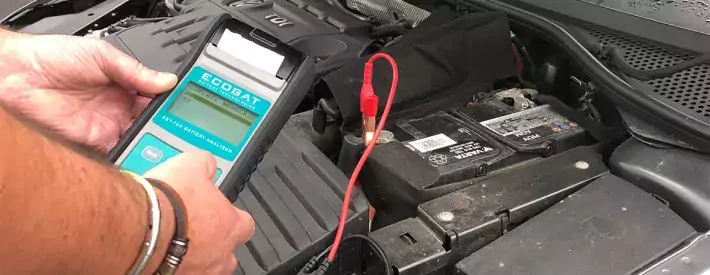Lithium pioneers and stop-start solutions

In this article: Lithium-ion battery-powered EVs could one day replace traditional vehicles, but the technology has other, more immediate, impacts on the motor trade
Lithium-ion technology is the go to technology for the automotive sector, and for good reason. In 2019 the brains behind lithium-ion power were finally awarded the Nobel Prize for Chemistry.
It was long-overdue recognition for the game-changing work of John Goodenough, Stanley Whittingham and Akira Yoshino in the 1970s and early ‘80s, which enabled everything from the mobile phone to the modern electric car.
It’s a technology that continues to develop. Pennsylvania State University announced in October that it had developed a li-ion battery capable of charging an EV in just 10 minutes. And Volkswagen is working to reduce the stubbornly high costs, of lithium-ion technology using a quantum computer.
Lithium-ion is a critical technology, but the it isn’t necessarily ready to take over the market when used in pure electric vehicles just yet, but it’s adoption isn’t limited to powering vehicles entirely.
Starting small
John Bentley, technical sales and training manager at Ecobat Battery Technologies, is urging workshops to be realistic about the shape of the market in the near to medium term.
“Everyone knows climate change cannot be ignored and electric is coming, along with pedestrianisation, bike hire schemes and other mobility solutions, but alternatively fuelled vehicles still account for only a tiny percentage of new car sales,” he says.
“Will even 10% of the car parc be electric a decade from now? Everyone is looking for the holy grail but stop-start is it. Unlike a traditional SLI (starter, lights, ignition) battery, an absorbent glass mat (AGM) is capable of 350,000 starts and can also recharge very quickly. Then, again due to emissions legislation, we saw the emergence of enhanced flooded battery (EFB) units for smaller engines. These are good for 210,000 starts.
“Independent garages should be very competitive on replacement AGM and EFB batteries, but according to our research 43% of them are turning this business away, often due to fear of expense. They need to recognise that AGM and EFB will be around for the next 20-25 years.”
Don’t fear the technology
To tackle the issue, Ecobat launched its One Box solution at Automechanika Birmingham in June, offering all the kit to enable technicians to correctly replace AGM and EFB batteries, including a battery analyser, charger, OBD lead and battery validation tool.
“We conduct seminars on this all over the UK and many of the attendees are IMI members,” says Bentley. “We provide video training and e-training and every time we see sales successes across the board – for us, the local distributors and the workshops.
“We explain the importance of what many in the industry still consider questionable: the decision by some vehicle manufacturers around 2004 to give the option to switch off stop start. This flew in the face of the original rationale – to reduce emissions – and has resulted in lots of AGM batteries lasting much longer than the expected four years, sometimes up to 12 years.
“These days, 92% of all new cars have stop start and the technology has advanced to the point where you hardly even notice the engine switching off and on, especially on automatics.
“The UK replacement battery market is worth around £5m a year so our message to independents is to get stuck in to AGM and EFB now because after that things will change dramatically.
“The cost of lithium batteries is so high – a significant percentage of the overall vehicle cost and valuable as scrap – that these batteries will be leased and the main dealers will seize the business from cradle to grave. Our seminars are currently booked out until March so there’s clearly a huge appetite to learn.”




